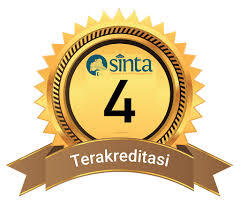Abubakar, Istianah. “Strengthening Core Values Pesantren as a Local Wisdom of Islamic Higher Education Through Ma ’ Had Jami ’ Ah.” IOP Conference SEries : Earth and Environmental Science, 2018, 1–7.
Adeng. “Sejarah Pesantren Miftahul Huda Manonjaya Tasikmalaya.” Jurnal Patanjala 3, no. 1 (2011): 18–32.
Affandi, Choer. ’Aqidah Islamiyyah. Tasikmalaya: Yayasan Pesantren Miftahul Huda, 2012.
———. Mutiara Hikmah Jalan Pikeun Ngahontal Darajat Kawalian. Tasikmalaya: Yayasan Pesantren Miftahul Huda, 2012.
Agussandi, Insan Malik. “Perkembangan Pondok Pesantren Miftahul Huda Dan Dampaknya Terhadap Kehidupan Sosial Keagamaan Masyarakat Kabupaten Tasikmalaya (1980-2009).” Jurnal Penelitian Pendidikan 2, no. 2 (2013).
Amaliah, Ima, Tasya Aspiranti, and Pupung Purnamasari. “The Impact of the Values of Islamic Religiosity to Islamic Job Satisfaction in Tasikmalaya West Java, Indonesia, Industrial Centre.” Procedia - Social and Behavioral Sciences 211, no. September (2015): 984–91. https://doi.org/10.1016/j.sbspro.2015.11.131.
Ashaari, Muhamad Faisal, Zainab Ismail, Anuar Puteh, Mohd Adib Samsudin, Munawar Ismail, Razaleigh Kawangit, Hakim Zainal, Badlihisham Mohd Nasir, and Mohd Ismath Ramzi. “An Assessment of Teaching and Learning Methodology in Islamic Studies.” Procedia - Social and Behavioral Sciences 59 (2012): 618–26. https://doi.org/10.1016/j.sbspro.2012.09.322.
Aziz, Helmi, and Nadri Taja. “Kepemimpinan Kyai Dalam Menjaga Tradisi Pesantren (Studi Deskriptif Di Pondok Pesantren Khalafi Al-Mu’awanah Kabupaten Kabupaten Bandung Barat).” Ta’dib V, no. 1 (2016): 10–18.
Brata, Yat Rospia. “Sejarah Berdirinya Pesantren Miftahul Huda Kecamatan Manonjaya Kabupaten Tasikmalaya.” Jurnal Artefak 1, no. 1 (2001): 50–68.
Damanhuri, Ahmad, Endin Mujahidin, and Didin Hafidhuddin. “Inovasi Pengelolaan Pesantren Dalam Menghadapi Persaingan Di Era Globalisasi.” Ta’dibuna : Jurnal Pendidikan Islam 2, no. 1 (2013): 17–38.
Fattah, Abdul. Uwa Ajengan. Ciamis: Glauh Nurani, 2013.
Fauzianti, Ina, Edi Suresman, and Abas Asyafah. “Model Pembelajaran Tauhid Di Pondok Pesantren Miftahul Huda Manonjaya Tasikmalaya.” Tarbawy 2, no. 2 (2015): 115–22.
Fua, Jumarddin La, Ratna Umi Nurlila, Fahmi Gunawan, and Ismail Suardi Wekke. “Islamic Education on Formation of Environmental Awareness in Pondok Pesantren Indonesia.” IOP Conference Series : Earth and Environmental Science, 2018, 1–4.
Haningsih, S. “Peran Strategis Pesantren, Madrasah Dan Sekolah Islam Di Indonesia.” Jurnal Pendidikan Islam: El Tarbawi 1, no. 1 (2008): 27–39. http://www.jurnal.uii.ac.id/index.php/Tarbawi/article/view/186.
Hasanudin, Sansan. “Mekanisme Religio-Politik Pesantren: Mobilisasi Jaringan Hamida Dalam Politik Elektoral Tasikmalaya.” Masyarakat Jurnal Sosiologi 22, no. 1 (2017): 53–80.
Hasyim, Fuad. “Pandangan Terhadap K.H. Choer Affandi.” 2016.
Hidayat, Tatang, Ahmad Syamsu Rizal, and Fahrudin. “Pola Pendidikan Islam Di Pondok Pesantren Mahasiswa Miftahul Khoir Bandung Dalam Membentuk Kepribadian Islami.” Ta’dib : Jurnal Pendidikan Islam VII, no. 1 (2018): 9–19.
Indrawati, Nur Khusniyah. “Management by Inspiration: Implementation of Transformational Leadership on Business at Pondok Pesantren*) Sunan Drajat.” Procedia - Social and Behavioral Sciences 115, no. Iicies 2013 (2014): 79–90. https://doi.org/10.1016/j.sbspro.2014.02.417.
Jaafar, Noornajihan, Ab. Halim Tamuri, Nurul Asiah Fasehah Muhamad, Norzulaili Mohd. Ghazali, Robiatul Adawiyah Mohd @ Amat, Norakyairee Mohd. Raus, and Syed Najihuddin Syed Hassan. “The Importance of Self-Efficacy: A Need for Islamic Teachers as Murabbi.” Procedia - Social and Behavioral Sciences 69 (2012): 359–66. https://doi.org/10.1016/j.sbspro.2012.11.421.
Kamin Sumardi. “Potret Pendidikan Karakter Di Pondok Pesantren Salafiah.” Jurnal Pendidikan Karakter 2, no. 3 (2012): 280–92. https://doi.org/10.21831/JPK.V0I3.1246.
Lubis, Maimun Aqsha, Melor Md Yunus, Mohamed Amin Embi, Sabariah Sulaiman, and Zamri Mahamod. “Systematic Steps in Teaching and Learning Islamic Education in the Classroom.” Procedia - Social and Behavioral Sciences 7, no. 2 (2010): 665–70. https://doi.org/10.1016/j.sbspro.2010.10.090.
Lukman Dkk, Awan. “Biografi : Mengenal Sosok K.H. Choer Affandi Ulama Legendaris Pondok Pesantren Miftahul Huda Manonjaya Tasikmalaya.” Majalah Suara Ulama. Bandung: Majalah Suara Ulama, 2016.
Lukman, Fahmy. “Menuju Sistem Pendidikan Islam.” Ta’dib : Jurnal Pendidikan Islam 2, no. 2 (2002): 149–62.
Murtado, Aliyun. “Biografi Dan Pemikiran KH. Choer Affandi Dalam Dunia Pendidikan.” 2015.
Nasir, Nurlatipah. “Kyai Dan Islam Mempengaruhi Perilaku Memilih Masyarakat Kota Tasikmalaya.” Jurnal Politik Profetik 6, no. 2 (2015): 26–49.
Prasanti, Ditha. “Strategi Komunikasi Pengembangan Sumber Daya Manusia Pndok Pesantren Salafi (Studi Kasus Tentang Komunikasi Pengembangan SDM Pondok Pesantren Miftahul Huda Tasikmalaya).” Jurnal Nomosleca 3, no. 1 (2017): 482–402.
Qodari, Ilham. “Biografi KH. Choer Affandi.” 2015.
Ridhwan, Abidin Nurdin, and Sri Astuti A Samad. “Dynamics of Islamic Education in The Land of Bugis : Growth , Development and Typology Pesantren in Bone.” IOP Conference Series : Earth and Environmental Science, 2018, 1–8.
Sabirin, Bambang Imam Eka Respati. Lajur Kanan Sebuah Jalan Dinamika Pemikiran Dan Aksi Bintang Bulan Studi Kasus Gerakan Darul Islam 1940 - 1962 (Tesis). Depok: Universitas Indonesia, 2003.
Saepurrohman, Riki. “Pandangan Terhadap KH. Choer Affandi.” 2015.
Sulasman. “Peasceful Jihad Dan Pendidikan Deradikalisasi Agama.” Walisongo 23, no. 1 (2015): 151–76.
Syahidin. Komunikasi Kyai-Santri Di Pondok Pesantren Miftahul Huda Manonjaya (Tesis). Bandung: Program Pascasarjana Universitas Pendidikan Indonesia, 1994.
Tanshzil, Sri Wahyuni. “Model Pembinaan Pendidikan Karakter Pada Lingkungan Pondok Pesantren Dalam Membangun Kemandirian Dan Disiplin Santri.” Jurnal Penelitian Pendidikan 13, no. 2 (2012): 1–18.
Wekke, Ismail Suardi. “Arabic Teaching and Learning: A Model from Indonesian Muslim Minority.” Procedia - Social and Behavioral Sciences 191 (2015): 286–90. https://doi.org/10.1016/j.sbspro.2015.04.236.
———. “Pesantren Dan Pengembangan Kurikulum Kewirausahaan : Kajian Pesantren Roudahtul Khuffadz Sorong Papua Barat.” Inferensi : Jurnal Penelitian Sosial Keagamaan 6, no. 2 (2012): 205–26.
Yusuf, Muhammad, and Ismail Suardi Wekke. “Active Learning on Teaching Arabic for Special Purpose in Indonesian Pesantren.” Procedia - Social and Behavioral Sciences 191 (2015): 137–41. https://doi.org/10.1016/j.sbspro.2015.04.245.
Zuhriy, M Syaifuddien. “Budaya Pesantren Dan Pendidikan Karakter Pada Pondok Pesantren Salaf.” Walisongo 19, no. 2 (2011): 287–310.
 Abstract views: 437
,
Abstract views: 437
,
 PDF downloads: 258
PDF downloads: 258
 PDF downloads: 206
PDF downloads: 206
 Wawancara bersama Ust. Aliyun Murtado (Cucu KH. Choer Affandi) downloads: 0
Wawancara bersama Ust. Aliyun Murtado (Cucu KH. Choer Affandi) downloads: 0
 Wawancara bersama Ust. Qodari (Rois Pesantren Miftahul Huda) downloads: 0
Wawancara bersama Ust. Qodari (Rois Pesantren Miftahul Huda) downloads: 0
















